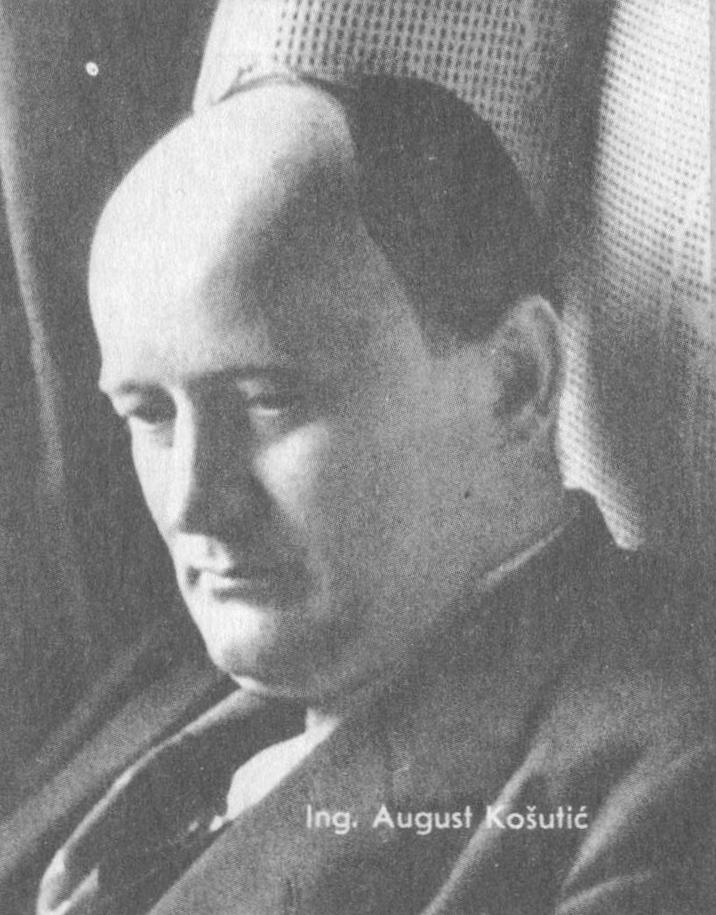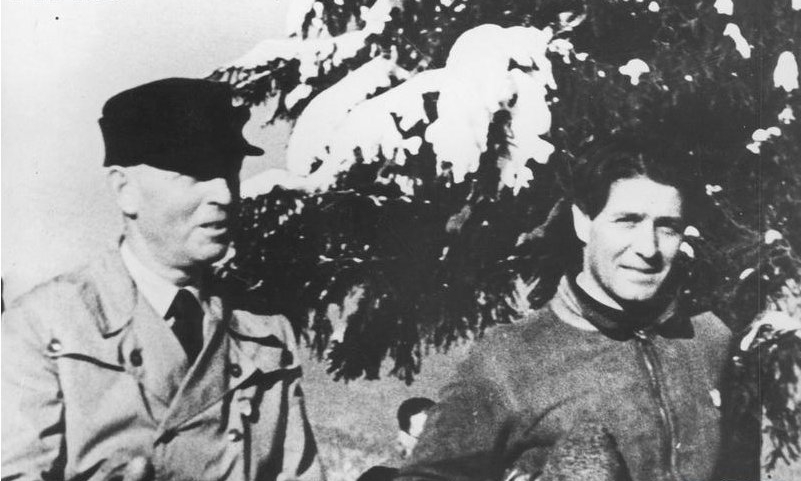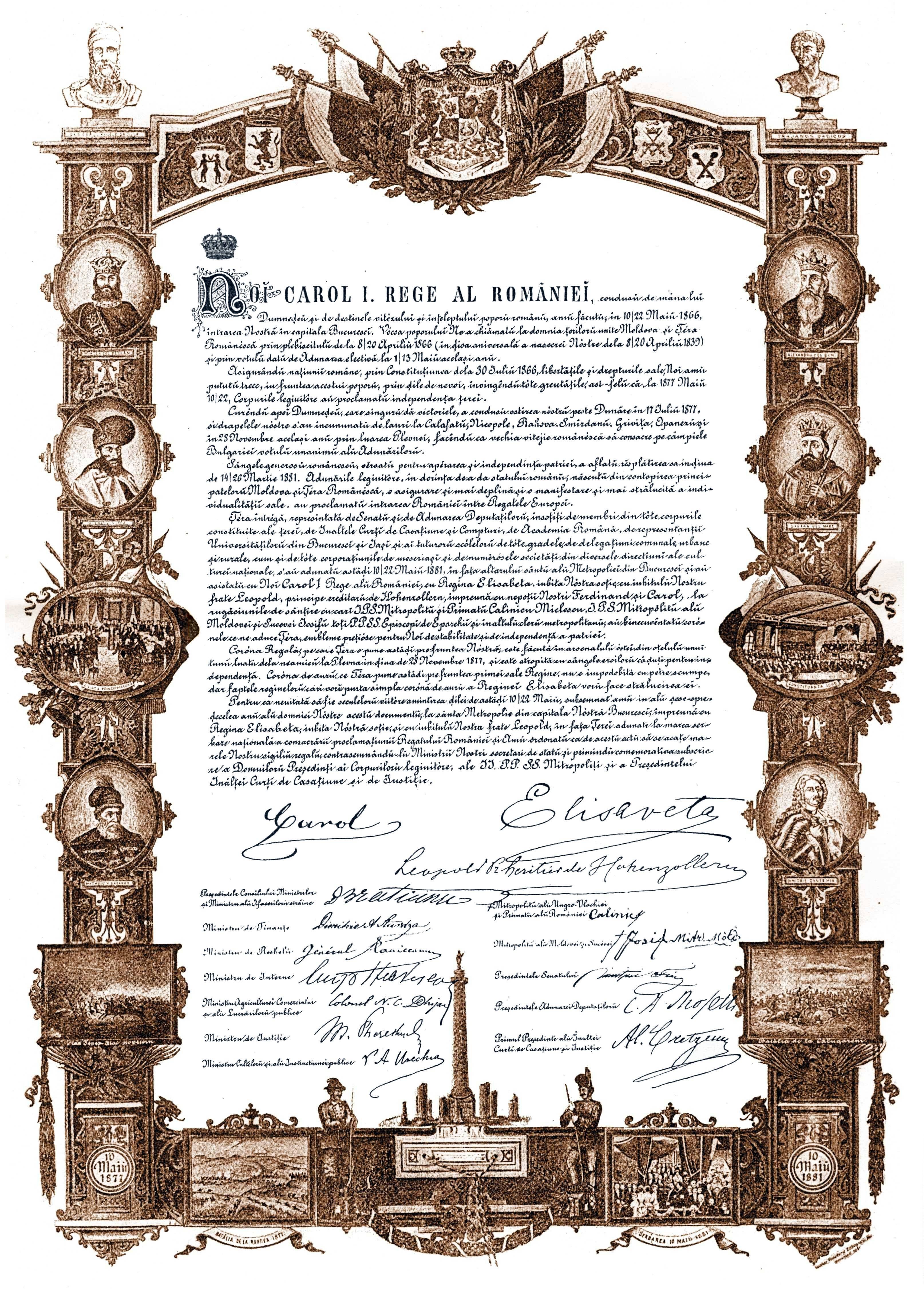|
Lorković–Vokić Plot
Lorković–Vokić plot () was a mid-1944 attempt initiated by Interior Minister Mladen Lorković and Armed Forces Minister Ante Vokić to form a coalition government with the Croatian Peasant Party (HSS), abandon the Axis powers and align the Independent State of Croatia with the Allies of World War II, Allies with the help of the Croatian Home Guard (Independent State of Croatia), Croatian Home Guard. The plot originated from the HSS, which was also involved in the negotiations with the Allies. The plot ended with mass arrests and the execution of the major plotters, including Lorković and Vokić. Situation in Europe On 24 August 1942, the Germans launched an attack on Stalingrad. The battle of Stalingrad ended in German defeat on 2 February 1943. After that victory, the war turned in the Soviet Union's favour. The Allied invasion of Sicily was launched on 9 July 1943, and soon, Benito Mussolini was overthrown and arrested on 25 July. The same day, Italian King Victor Emmanuel ... [...More Info...] [...Related Items...] OR: [Wikipedia] [Google] [Baidu] |
Mladen Lorković
Mladen Lorković (; 1 March 1909 – April 1945) was a Croatian politician and lawyer who became a senior member of the Ustaše and served as the Foreign Minister and Minister of Interior of the Independent State of Croatia (NDH) during World War II. Lorković led the Lorković-Vokić plot, an attempt to establish a coalition government between the Ustaše and the Croatian Peasant Party and align the Independent State of Croatia with the Allies. As a student, he joined the Croatian Party of Rights but, viewed as a dissident in the Kingdom of Yugoslavia, he fled the country to avoid arrest and eventually settled in Germany where he obtained a doctorate in law at the University of Berlin. In 1934, he joined the Ustaše and became a close associate of Ante Pavelić. Although he was initially commander of all Ustaše in Germany, where he sought support in creating and protecting a Croatian state, he later became leader of all Ustaše outside Italy. Soon after the establishment of t ... [...More Info...] [...Related Items...] OR: [Wikipedia] [Google] [Baidu] |
Normandy
Normandy (; or ) is a geographical and cultural region in northwestern Europe, roughly coextensive with the historical Duchy of Normandy. Normandy comprises Normandy (administrative region), mainland Normandy (a part of France) and insular Normandy (mostly the British Channel Islands). It covers . Its population in 2017 was 3,499,280. The inhabitants of Normandy are known as Normans; the region is the historic homeland of the Norman language. Large settlements include Rouen, Caen, Le Havre and Cherbourg-en-Cotentin, Cherbourg. The cultural region of Normandy is roughly similar to the historical Duchy of Normandy, which includes small areas now part of the departments of Mayenne and Sarthe. The Channel Islands (French: ''Îles Anglo-Normandes'') are also historically part of Normandy; they cover and comprise two bailiwicks: Bailiwick of Guernsey, Guernsey and Jersey, which are British Crown Dependencies. Normandy's name comes from the settlement of the territory by Vikings ( ... [...More Info...] [...Related Items...] OR: [Wikipedia] [Google] [Baidu] |
Kingdom Of Hungary (1920–46)
The Kingdom of Hungary was a monarchy in Central Europe that existed for nearly a millennium, from 1000 to 1946 and was a key part of the Habsburg monarchy from 1526-1918. The Principality of Hungary emerged as a Christian kingdom upon the coronation of the first king Stephen I at Esztergom around the year 1000;Kristó Gyula – Barta János – Gergely Jenő: Magyarország története előidőktől 2000-ig (History of Hungary from the prehistory to 2000), Pannonica Kiadó, Budapest, 2002, , pp. 37, 113, 678 ("Magyarország a 12. század második felére jelentős európai tényezővé, középhatalommá vált."/"By the 12th century Hungary became an important European factor, became a middle power.", "A Nyugat részévé vált Magyarország.../Hungary became part of the West"), pp. 616–644 his family (the Árpád dynasty) led the monarchy for 300 years. By the 12th century, the kingdom became a European power. Due to the Ottoman occupation of the central and southe ... [...More Info...] [...Related Items...] OR: [Wikipedia] [Google] [Baidu] |
Regent
In a monarchy, a regent () is a person appointed to govern a state because the actual monarch is a minor, absent, incapacitated or unable to discharge their powers and duties, or the throne is vacant and a new monarch has not yet been determined. The rule of a regent or regents is called a regency. A regent or regency council may be formed ''ad hoc'' or in accordance with a constitutional rule. ''Regent'' is sometimes a formal title granted to a monarch's most trusted advisor or personal assistant. If the regent is holding the position due to their being in the line of succession, the compound term '' prince regent'' is often used; if the regent of a minor is their mother, and she is wife or widow of the king, she would be referred to as ''queen regent''. If the formally appointed regent is unavailable or cannot serve on a temporary basis, a may be appointed to fill the gap. In a monarchy, a regent usually governs due to one of these reasons, but may also be elected to ... [...More Info...] [...Related Items...] OR: [Wikipedia] [Google] [Baidu] |
Konstantin Muraviev
Konstantin Vladov Muraviev (; 5 March 1893 – 31 January 1965) was a leading member of the Agrarian People's Union who briefly served as Prime Minister of Bulgaria near the end of Bulgaria's involvement in the Second World War on the side of Germany. Muraviev was educated at Robert College of Istanbul, just like Todor Ivanchov, Konstantin Stoilov and many other Bulgarians were at the time. Early career The nephew of Aleksandar Stamboliyski, he was appointed Minister of War under his uncle when aged only 29, although he proved unsuccessful in the post, with his refusal to acknowledge threats of a coup a major factor in the collapse of Stamboliyski's government in 1923. He would hold several other cabinet posts in coalition governments between 1931 and 1934 and his assured performances in these role rehabilitated his political reputation.Marshall Lee Miller, ''Bulgaria During the Second World War'', Stanford University Press, 1975, p. 205 Prime minister During the Second ... [...More Info...] [...Related Items...] OR: [Wikipedia] [Google] [Baidu] |
Kingdom Of Bulgaria
The Tsardom of Bulgaria (), also known as the Third Bulgarian Tsardom (), usually known in English as the Kingdom of Bulgaria, or simply Bulgaria, was a constitutional monarchy in Southeastern Europe, which was established on , when the Bulgarian state was raised from a Principality of Bulgaria, principality to a tsardom. Prince Ferdinand I of Bulgaria, Ferdinand, founder of the Bulgarian royal family, royal family, was crowned as Tsar of Bulgaria, tsar at the Declaration of Independence, mainly because of his military plans and for seeking options for unification of all lands in the Balkans region with an ethnic Bulgarian majority (lands that had been seized from Bulgaria and given to the Ottoman Empire in the Treaty of Berlin (1878), Treaty of Berlin). He and his successors were reckoned as kings internationally. The state was almost constantly at war throughout its existence, lending to its nickname as "the Balkan Prussia". For several years Bulgaria mobilized an army of more ... [...More Info...] [...Related Items...] OR: [Wikipedia] [Google] [Baidu] |
Fatherland Front (Bulgaria)
The Fatherland Front () was a Bulgarian pro-communist political resistance movement, which began in 1942 during World War II. The Zveno movement, the communist Bulgarian Workers Party, a wing of the Bulgarian Agrarian National Union and the Bulgarian Social Democratic Workers Party all became part of the OF. The constituent groups of the OF had widely contrasting ideologies and had united only in the face of the pro-German militarist dictatorship in Bulgaria. At the beginning, the members of the OF worked together, without a single dominating group. Professional associations and unions could be members of the front and maintain their organisational independence. However, the Bulgarian Communist Party soon began to dominate. In 1944, after the Soviet Union had declared war on Bulgaria, the OF carried out a coup d'état (9 September 1944) and declared war on Germany and the other Axis An axis (: axes) may refer to: Mathematics *A specific line (often a directed line) ... [...More Info...] [...Related Items...] OR: [Wikipedia] [Google] [Baidu] |
Bulgarian Army
The Bulgarian Army (), also called Bulgarian Armed Forces, is the military of Bulgaria. The commander-in-chief is the president of Bulgaria. The Ministry of Defense is responsible for political leadership, while overall military command is in the hands of the Defense Staff, headed by the Chief of the Defense. There are three main branches of the Bulgarian military, named literally the Land Forces, the Air Forces and the Naval Forces (the term "Bulgarian Army" refers to them encompassed all together). Throughout history, the Army has played a major role in defending the country's sovereignty. Only several years after its inception in 1878, Bulgaria became a regional military power and was involved in several major wars – Serbo-Bulgarian War (1885), First Balkan War (1912–13), Second Balkan War (1913), First World War (1915–1918) and Second World War (1941–1945), during which the Army gained considerable combat experience. During the Cold War, the People's Republic of B ... [...More Info...] [...Related Items...] OR: [Wikipedia] [Google] [Baidu] |
Ion Antonescu
Ion Antonescu (; ; – 1 June 1946) was a Romanian military officer and Mareșal (Romania), marshal who presided over two successive Romania during World War II, wartime dictatorships as Prime Minister of Romania, Prime Minister and ''Conducător'' during most of World War II. Having been responsible for facilitating the Holocaust in Romania, he was overthrown in 1944, before being tried for war crimes and executed two years later in 1946. A Romanian Army career officer who made his name during the 1907 Romanian peasants' revolt, 1907 peasants' revolt and the Romania in World War I, World War I Romanian campaign, the antisemitic Antonescu sympathized with Far-right politics, far-right and Fascism, fascist politics. He was a military attaché to France and later Chief of the Romanian General Staff, Chief of the General Staff, briefly serving as Ministry of National Defense (Romania), Defence Minister in the National Christian cabinet of Octavian Goga as well as the subsequent F ... [...More Info...] [...Related Items...] OR: [Wikipedia] [Google] [Baidu] |
King Michael's Coup
King is a royal title given to a male monarch. A king is an absolute monarch if he holds unrestricted governmental power or exercises full sovereignty over a nation. Conversely, he is a constitutional monarch if his power is restrained by fixed laws. Kings are hereditary monarchs when they inherit power by birthright and elective monarchs when chosen to ascend the throne. *In the context of prehistory, antiquity and contemporary indigenous peoples, the title may refer to tribal kingship. Germanic kingship is cognate with Indo-European traditions of tribal rulership (cf. Indic '' rājan'', Gothic '' reiks'', and Old Irish '' rí'', etc.). *In the context of classical antiquity, king may translate in Latin as '' rex'' and in Greek as '' archon'' or ''basileus''. *In classical European feudalism, the title of ''king'' as the ruler of a ''kingdom'' is understood to be the highest rank in the feudal order, potentially subject, at least nominally, only to an emperor (harking b ... [...More Info...] [...Related Items...] OR: [Wikipedia] [Google] [Baidu] |
Michael Of Romania
Michael I ( ; 25 October 1921 – 5 December 2017) was the last King of Romania, reigning from 20 July 1927 to 8 June 1930 and again from 6 September 1940 until his forced abdication on 30 December 1947. Shortly after Michael's birth, his father, Crown Prince Carol, had become involved in a controversial relationship with Magda Lupescu. In 1925, Carol was pressured to renounce his rights (in favour of his son Michael) to the throne and moved to Paris in exile with Lupescu. In July 1927, following the death of his grandfather Ferdinand I, Michael ascended the throne at age five, the youngest crowned head in Europe. As Michael was still a minor, a regency council was instituted, composed of his uncle Prince Nicolas, Patriarch Miron Cristea and Chief Justice Gheorghe Buzdugan. The council proved to be ineffective and, in 1930, Carol returned to Romania and replaced his son as monarch, reigning as Carol II. As a result, Michael returned to being heir apparent to the throne a ... [...More Info...] [...Related Items...] OR: [Wikipedia] [Google] [Baidu] |
Kingdom Of Romania
The Kingdom of Romania () was a constitutional monarchy that existed from with the crowning of prince Karl of Hohenzollern-Sigmaringen as King of Romania, King Carol I of Romania, Carol I (thus beginning the Romanian royal family), until 1947 with the abdication of King Michael I of Romania, Michael I and the Romanian parliament's proclamation of the Socialist Republic of Romania, Romanian People's Republic. From 1859 to 1877, Romania evolved from a personal union of two Principality, principalities: (Moldavia and Wallachia) called the Unification of Moldavia and Wallachia also known as "The Little Union" under a single prince to an autonomous principality with a House of Hohenzollern, Hohenzollern monarchy. The country gained its independence from the Ottoman Empire during the Russo-Turkish War (1877–1878), 1877–1878 Russo-Turkish War (known locally as the Romanian War of Independence), after which it was forced to cede the southern part of Bessarabia in exchange for Northern ... [...More Info...] [...Related Items...] OR: [Wikipedia] [Google] [Baidu] |







